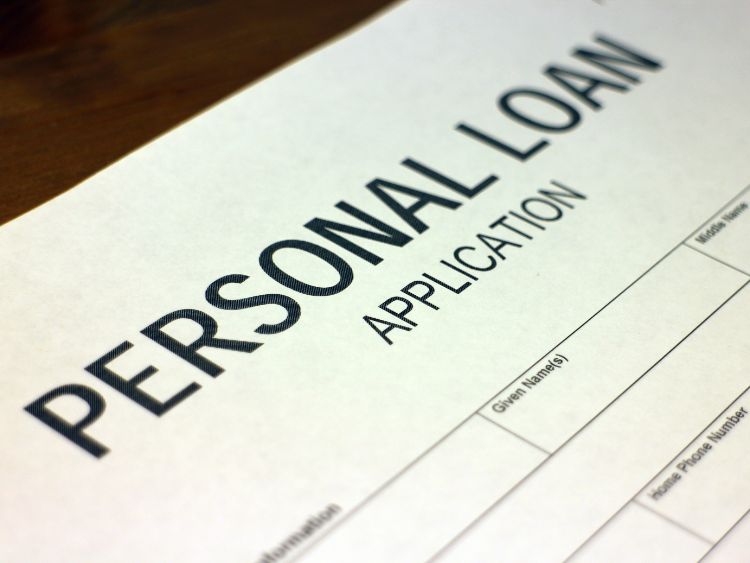Subprime personal loans are a type of financing option designed for individuals with less-than-perfect credit scores. These loans often come with higher interest rates and more stringent terms compared to prime loans, which are available to borrowers with strong credit histories. In this article, we will explore the ins and outs of subprime personal loans, including their benefits, drawbacks, and alternatives.
What Are Subprime Personal Loans?
Subprime personal loans are loans granted to borrowers who do not qualify for prime loans due to their credit scores. Typically, a prime loan is available to individuals with a credit score of 670 or higher. On the other hand, subprime loans cater to those with credit scores below this threshold, often ranging between 580 and 669. These loans are riskier for lenders, which is why they come with higher interest rates and fees.
Why Do People Opt for Subprime Personal Loans?
Despite the higher costs, many people turn to subprime personal loans for various reasons:
- Credit Repair: Borrowers can use these loans to demonstrate their ability to make regular payments, potentially improving their credit scores over time.
- Emergencies: Subprime loans can provide quick access to funds during financial emergencies when other options are unavailable.
- Debt Consolidation: Some individuals use subprime personal loans to consolidate high-interest debts into a single, more manageable payment.
The Mechanics of Subprime Personal Loans
When applying for a subprime personal loan, borrowers should expect the following:
- Higher Interest Rates: Due to the increased risk, lenders charge higher interest rates, sometimes double or triple those of prime loans.
- Shorter Repayment Terms: Lenders may offer shorter repayment periods to minimize risk exposure.
- Collateral Requirements: Some subprime loans may require collateral, such as a car or property, to secure the loan.
How to Qualify for a Subprime Personal Loan
Qualifying for a subprime personal loan involves several steps:
- Check Your Credit Score: Knowing your credit score helps you understand what type of loan you can qualify for.
- Gather Financial Documents: Lenders will need proof of income, employment history, and other financial documents to assess your ability to repay the loan.
- Compare Lenders: Not all lenders offer the same terms. Shop around to find the best rates and conditions.
- Prepare for Higher Costs: Be ready for higher interest rates and fees associated with subprime loans.
The Pros and Cons of Subprime Personal Loans
Pros
- Accessibility: Available to individuals with poor or limited credit histories.
- Quick Approval: Often faster approval processes compared to traditional loans.
- Potential Credit Improvement: Making timely payments can help improve credit scores.
Cons
- High Interest Rates: Can significantly increase the total repayment amount.
- Shorter Terms: May result in higher monthly payments.
- Collateral Risk: If the loan is secured, failing to repay can result in the loss of the collateral.
Alternatives to Subprime Personal Loans
Before opting for a subprime personal loan, consider these alternatives:
- Credit Unions: Often offer more favorable terms to their members compared to traditional banks.
- Peer-to-Peer Lending: Platforms that connect borrowers directly with individual lenders, potentially offering better rates.
- Family and Friends: Borrowing from personal connections can sometimes provide interest-free or lower-interest loans.
- Credit Counseling: Professional credit counselors can help you develop a debt management plan and explore other financing options.
FAQs About Subprime Personal Loans
What Are the Typical Interest Rates for Subprime Personal Loans?
Interest rates for subprime personal loans can vary widely but typically range from 15% to 30% or higher, depending on the lender and the borrower’s creditworthiness.
Can Subprime Personal Loans Improve My Credit Score?
Yes, if you make timely payments, subprime personal loans can help improve your credit score over time. However, missed or late payments can further damage your credit.
Are There Any Hidden Fees Associated with Subprime Personal Loans?
Some lenders may charge additional fees, such as origination fees, prepayment penalties, and late payment fees. It’s essential to read the loan agreement carefully and ask the lender about any potential hidden costs.
How Quickly Can I Get Approved for a Subprime Personal Loan?
Approval times can vary, but many lenders offer quick approvals, sometimes within the same day or a few business days, especially if you provide all necessary documentation promptly.
Conclusion
Subprime personal loans offer a viable option for individuals with poor credit who need access to funds. While they come with higher costs, these loans can serve as a bridge during financial emergencies and provide an opportunity for credit improvement. It’s crucial to weigh the pros and cons carefully and explore alternatives before committing to a subprime personal loan. By understanding the mechanics and potential pitfalls, borrowers can make informed decisions and manage their finances more effectively.
Authoritative Links
- Federal Trade Commission: https://www.ftc.gov
- Consumer Financial Protection Bureau: https://www.consumerfinance.gov
- National Foundation for Credit Counseling: https://www.nfcc.org
- Experian: https://www.experian.com
- Equifax: https://www.equifax.com
